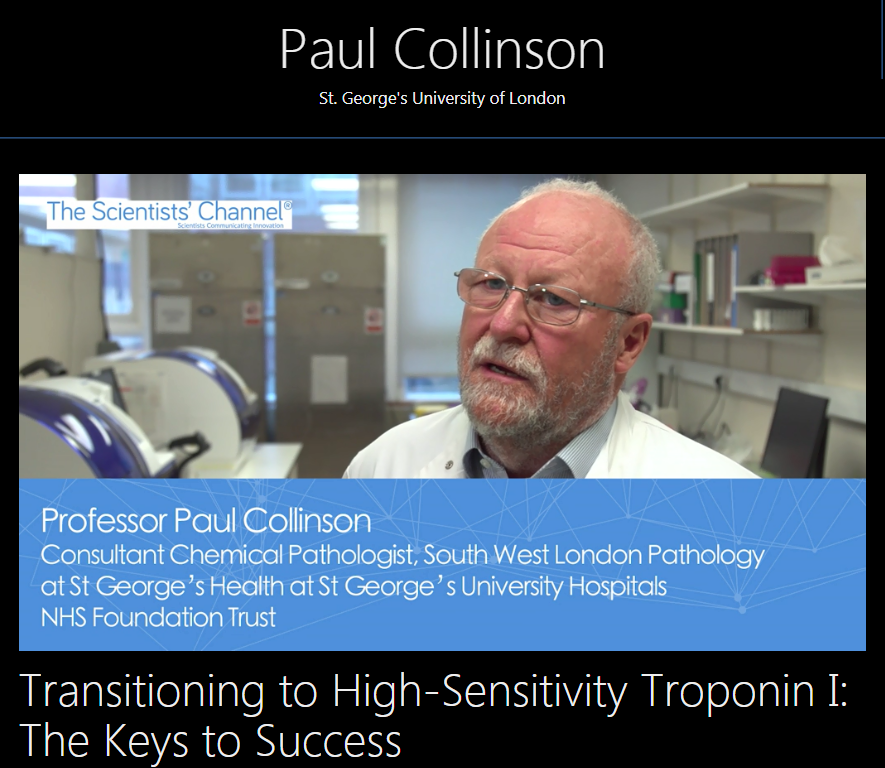SWLP and St George’s Hospital Professor of Biomedical Cell Markers Paul Collinson was filmed for a short piece on the Scientists’ Channel of the Select Science website. Select Science promotes scientists and their work across the globe and the Scientist’ Channel is made up of videos of leading international scientists and clinicians talking about various topical scientific issues.
Professor Collinson talks about the cardiac troponin test, which helps clinicians to diagnose myocardial infarction, describing it as having the sensitivity to be able to ‘detect a sugar cube in Loch Ness’.

